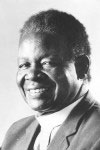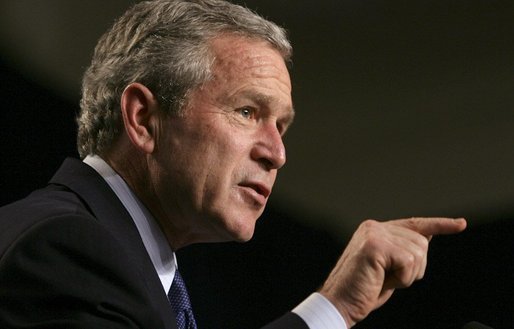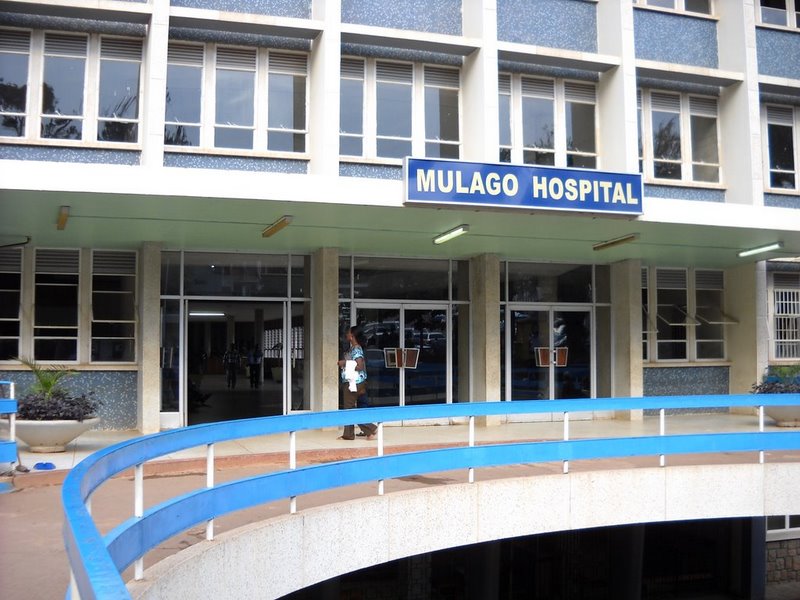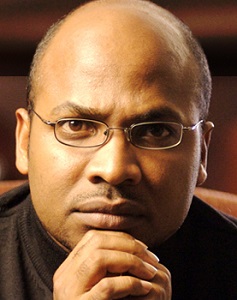4 missteps that let AIDS continue to spread
Colin Stewart is a 45-year journalism veteran living in Southern…
The Rev. Canon Albert Ogle describes the obstacles that AIDS fighters face in Africa and especially in Uganda, where he recently traveled to help develop the Good Samaritan Consortium. The consortium consists of a dozen small organizations working to fight AIDS among LGBT people and sex workers in Uganda.

I first flew into Kampala, Uganda’s capital, in 1991 when the city’s population was only a million people. Today the population has doubled.
I travelled on Kenya Airlines this time and felt at ease when the pilot announced his name over the intercom … Ogola. This was the Ugandan name given to me by Ugandan Archbishop Yona Okoth all those years ago, when church leaders were glad to see me here to help them with the AIDS epidemic. Now, I am seen as a “promoter of homosexuality,” and bishops I once helped alleviate famine in their dioceses refuse to meet with me.
In 1988, the Archbishop spoke at the Lambeth Conference of world-wide Anglican bishops and said: “We do not have AIDS in Africa.” Every African bishop present also agreed with him.

He returned to his country where his personal driver committed suicide after he tested positive and every bishop (including Okoth) had to painfully let reality in as members of their families and fellow clergy died of AIDS. These were terrible years and although AIDS was being discussed in many Ugandan quarters prior to 1988, the church was the last ship in the convoy to wake up to reality.
To his credit, Yona spent the rest of his life educating his community and saving lives – people who are still with us because of his courage to face reality. But how many were lost because religious leaders were just wrong and out of touch with reality?
Uganda today
I have spent this week looking at the Ugandan AIDS response, particularly for what is called “vulnerable” or “most at risk” populations. These groups are recognized universally as sex workers, IV drug users and LGBT people.

In Uganda, where all three groups’ behaviors are criminalized, there is a strangeness in the air as to how the community deals or does not deal with them and it keeps changing. In the past decade, President Yoweri Museveni has moved from stating that “We have no homosexuals in Uganda” to “This is un-African and what is here is a Western import” to “We have always had them in our communities but they lived quietly. It is the promotion of homosexuality we are opposed to.”
Denial takes many forms and takes time. Unfortunately, more of these marginalized communities are getting infected and dying before the people of Uganda admit they exist.
United States responds: Your tax dollars at work
On Tuesday, I attended a meeting with the top-level HIV officials representing the U.S. government in this country. They are well-educated, extremely dedicated and hard-working people who sacrifice so much to represent the best of our national community in foreign countries.
Uganda is no cushy post, given the complexity of the AIDS epidemic, which American taxpayers have generously helped to fight for 25 years. Millions of lives have been saved and millions of orphaned children are still fed and schooled because we care. Government and faith-based organizations have done amazing things in this land. However, there are some parts of our national response that need our urgent attention, so we can be consistent with our support and development priorities.

The latest Ugandan Country Operational Plan was one of the most controversial and was sent back to Uganda from Washington for further review. Part of this concern was the effects of PEPFAR funding to evangelical and faith-based non-government organizations (NGOs) that are still investing in abstinence-only programs. This policy remains part of the George W. Bush legacy and is a favorite program of first lady Janet Museveni.
Many would admit PEPFAR was probably one of the most important programs Bush was responsible for, but there is a shadow side to this policy that is largely hidden from the American people. We still fund abstinence- only programs even though there is no evidence that they reduce the spread of HIV. There is reluctance by religious organizations, who receive millions of dollars from our government to implement these programs, to admit that they do not work.
These multimillion-dollar grants to churches are the last gasps of an illusion seeking to keep Ugandan a chaste and Christian nation. Consider the high teenage birthrate and the population growth in this country. “Go forth and multiply” is a community obsession in and out of marriage. Ugandans love to have sex, even in the age of AIDS. It is clear, despite millions of our tax dollars spent on abstinence-only programs, that the church is still in denial and the last ship in the convoy once again, as it was 25 years ago.
How difficult is it for Americans to work in this culture of denial?
My fellow Americans were working hard to complete a PEPFAR report for Washington where it was clear they were overcompensating for abstinence-only programs but were way off on their target numbers to reach “most at risk” or “vulnerable” populations. The reasons became clear as the meeting progressed.
Bad data: Less than 1% of population is gay or bisexual?

1. The head of the U.S. Centers for Disease Control and Prevention based in Uganda reported there are an estimated 8,000 men who have sex with men (MSM) in Kampala. My jaw dropped. These figures were based on some pretty scanty data and a survey of self-reporting men who came to clinics for STD and HIV services, so our colleagues felt that three facilities — one men’s clinic at Mulago Hospital targeting MSM, another clinic outreaching to female prostitutes, and another teaching hospital’s clinic in another part of Uganda — could meet the needs of these vulnerable populations. So the estimate for HIV treatment need was 14% of 8,000 men in Kampala (out of a population of 2 million people in the city).
They felt there wasn’t the need to get mainstream health care systems and personnel to engage these vulnerable populations more deeply than this, that these three clinics were all that was needed. This was turning into a very surreal conversation … but really a good one. Did the data seem – unscientific? There has never been a comprehensive survey on the very active sexual practices of Ugandans and this may be the time to actually conduct one through a well-respected local university. Otherwise how can we ever estimate true numbers of populations at risk and allocate resources accordingly? For now, according to our top U.S. experts on HIV in Uganda, we were meeting the needs of the community.
The Good Samaritan Consortium (a group of a dozen small organizations working with LGBT and sex workers) challenged this assumption. It was a good conversation.
Bad information: No training for embassy staff about LGBT people
2. In March, when we last met with the HIV embassy team, we submitted a very successful curriculum designed to train Ugandan health-care professionals. The course lasts two days and basically detoxes these front-line workers from some of the anti-gay propaganda that has come from the evangelical churches through USA churches and NGOs. Once they are cleansed from misinformation, these dedicated workers want to serve everyone and are all set to include historically marginalized people to come to their clinics for HIV testing and services. We learned that the Ugandan embassy local staff that support the American diplomatic staff, the vast majority of whom are Ugandans, have had no formal sensitization training around LGBT issues.
This is the case in most of our missions across the world. USAID has developed a 45-minute computerized self-learning program but there is no comparison between such an online program and a professionally centered program that can describe best practices and answer questions from fellow straight Ugandans.
We received a letter from the head training officer dismissing our offer with the excuse that the program had no money. But we were not asking for money, just the opportunity to train the gatekeepers of the funds.

Without this sensitivity training, American tax dollars in PEPFAR and USAID remain in the control of well-meaning staff who may still believe that gays are deviants who should be locked up, as Pastor Ssempa and their church leaders tell them.
The resistance from the embassy leadership to even engage the issue of sensitization training for their own employees and colleagues was palpable. They simply did not want to rock the boat any more than it was rocking. I recently met the wife of a diplomat returning to the USA from Rome who removed her son from a school when its sex education course talked about homosexuality. Maybe our diplomats need this training also?
Misappropriation of funds and failure to complete contracts
3. Several agencies present in the meeting are supposed to be working with most-at-risk populations, including the Ministry of Health’s LGBT and sex worker clinic, which I recently visited. The program is impressive, but the experienced physician who runs it noted that, although large non-government organizations receive millions in funding and promise to include vulnerable populations, they never actually serve them. I asked about accountability: There has never been an agency that either had to return the money or lost its contract because it failed to deliver on its agreement with the American people to serve everyone. Ugandans can leave out LGBT people from the list of vulnerable populations and USAID staff still writes the checks. So why change?
Lack of money for small organizations working with LGBT people
4. It was clear none of the smaller organizations working with LGBT people had a chance of getting near any of these funds because a recent audit of a civil society organization uncovered fraud and mismanagement. Even three groups that had recently been awarded contracts were turned down when they failed to meet the major accounting requirements by our government. So the issue of access to funds and access to services remains a problem that USAID and PEPFAR need to grapple with.
Someone needs to create an interim model that can provide technical assistance to emerging organizations while the larger organizations learn to work with these populations or give back their grants.
I suggested that the embassy use its power to convene its contractors with the Good Samaritan Consortium. There could be some good sharing of best practices. The issue of accountability and including client populations in service-delivery planning and evaluation would occur through those meetings. Instead, the members of the Consortium are now going around to existing USAID contractors and there may be success in finding one who will step forward and provide us with the technical assistance we need to get on with the work.
The Consortium members are basically begging that a larger agency will take them on. Yet the members of the Consortium are the ones who are the experts; they know more about the needs of these populations. The mother agency will just provide them with the cover required by USAID — if they are lucky.
AIDS could become a global epidemic among young gay men
This scenario is not limited to Uganda. I shared a recent summary report with the embassy team to let them know they were not alone in struggling with these issues.
Three weeks ago I wrote about a report released by the American Foundation for AIDS Research (amfAR ) that followed PEPFAR and USAID funding over 10 years in eight Southern African countries. The portion of actual funds reaching programs serving vulnerable populations and MSM was minuscule. All I am describing in Uganda is happening quietly all over Africa.
Our visit to the embassy was a cry for help. We wanted Uganda to be one of the first countries to own up to this dirty little secret and begin to turn the tide to transform it.
The amfAR research showed us a horrific future scenario if we fail to end the denial and fail to provide the needed resources to real people in need. What is now a disease that is associated in Africa with women and vulnerable children, if we do not pay attention to these marginalized and under-documented communities, will change into a global epidemic affecting largely young gay men and transgender people.
We will never end AIDS if we allow this to happen. Right now it is a choice. It is a choice you and I make in allowing our tax dollars to be spent in this way and administered by people who may or may not be committed to the same values.
Uganda is still living in its own forms of denial and the USA epidemic has its own craziness, so we cannot and should not throw stones. The moral leadership of government, civil society and religious organizations has never been more important than it is here and now.
Flying into Uganda 25 years ago was a much an easier task than the kind of issues and tasks our good folk at the embassy are dealing with every day. They put their lives on the line that others may live. We all want the highest value of access to health and dignity for everyone to be consistent across all our development programs. Don’t we?
The Rev. Canon Albert Ogle of St. Paul’s Cathedral in San Diego looks at faith and religion from an LGBT point of view. Ogle is known around the world for his work in support of LGBT rights and HIV-prevention efforts. He is president of St. Paul’s Foundation for International Reconciliation. Donations to the foundation can be made by clicking HERE.
This is a slightly abridged, edited version of a column that originally appeared in the San Diego Gay and Lesbian News: “RGOD2: Uganda mystery: There are 8,000 men who have sex with men in Kampala?”
Related articles
- Uganda: As AIDS worsens, archbishop is an obstacle (76crimes.com)
- Ugandan Minister of Ethics and Integrity says Men Raping Girls is Natural (oblogdeeoblogda.me)
- Fatal flaw in official anti-AIDS declaration (76crimes.com)


